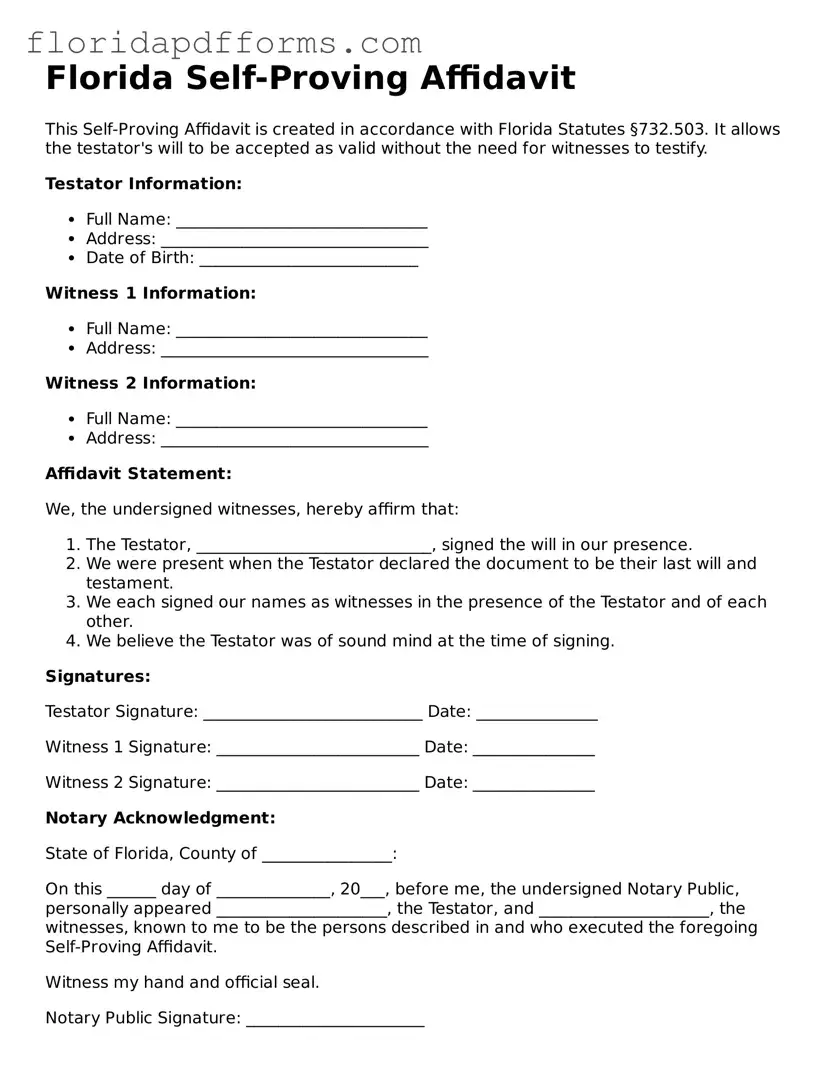Official Self-Proving Affidavit Template for Florida
The Florida Self-Proving Affidavit is a legal document that simplifies the process of validating a will. By allowing witnesses to affirm their signatures, this form helps ensure that a will can be accepted in court without the need for additional testimony. Ready to streamline your estate planning? Fill out the form by clicking the button below.
Modify Self-Proving Affidavit Now

Official Self-Proving Affidavit Template for Florida
Modify Self-Proving Affidavit Now

Modify Self-Proving Affidavit Now
or
⇓ Self-Proving Affidavit File
Don’t stop halfway through your form
Finish your Self-Proving Affidavit online with quick edits and instant download.